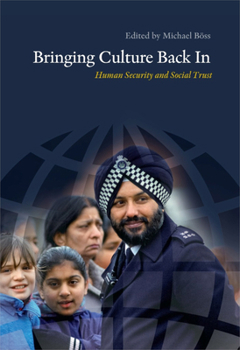Bringing Culture Back in: Human Security and Social Trust
Economists used to claim that material self-interest and the rational choices of the individual were universal factors that transcended cultural values and differences. This position has been challenged by critics, who have pointed out the methodological and philosophical weaknesses of this approach. They dispute the idea that social order can be explained as the product of the choices of individual agents, and that social agents operate independently of their social and cultural values and norms. Today, there is virtual agreement, not only among students of culture, but also among social scientists that "culture counts" in both politics and society as well as in international relations. In this book, a number of international political scientists, economists, philosophers, and humanist scholars address the role of culture, ethnicity, and religion in contemporary states and societies.
Format:Paperback
Language:English
ISBN:8771247912
ISBN13:9788771247916
Release Date:April 2016
Publisher:Aarhus University Press
Length:285 Pages
Weight:1.20 lbs.
Dimensions:0.8" x 6.0" x 8.5"
Customer Reviews
0 rating





